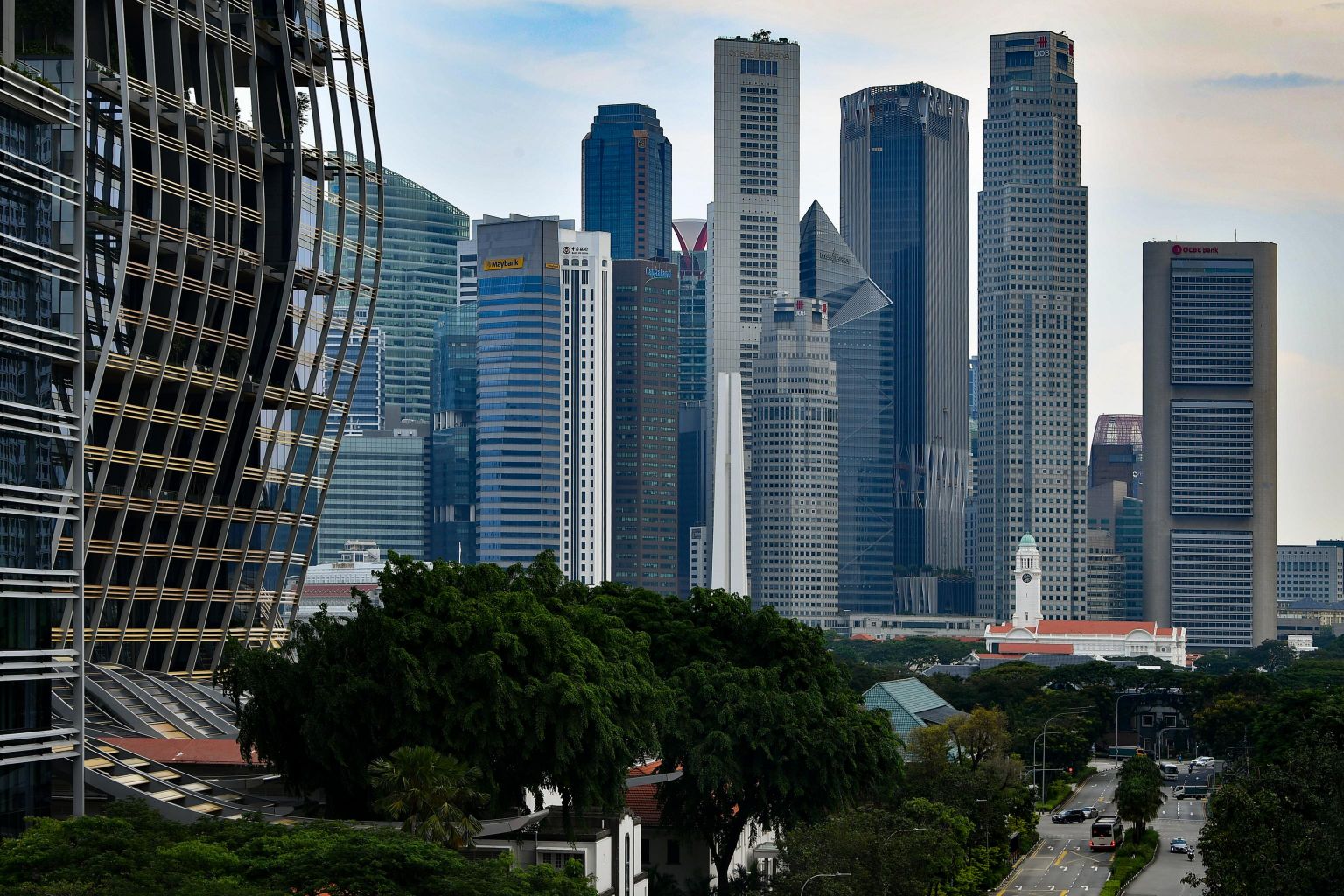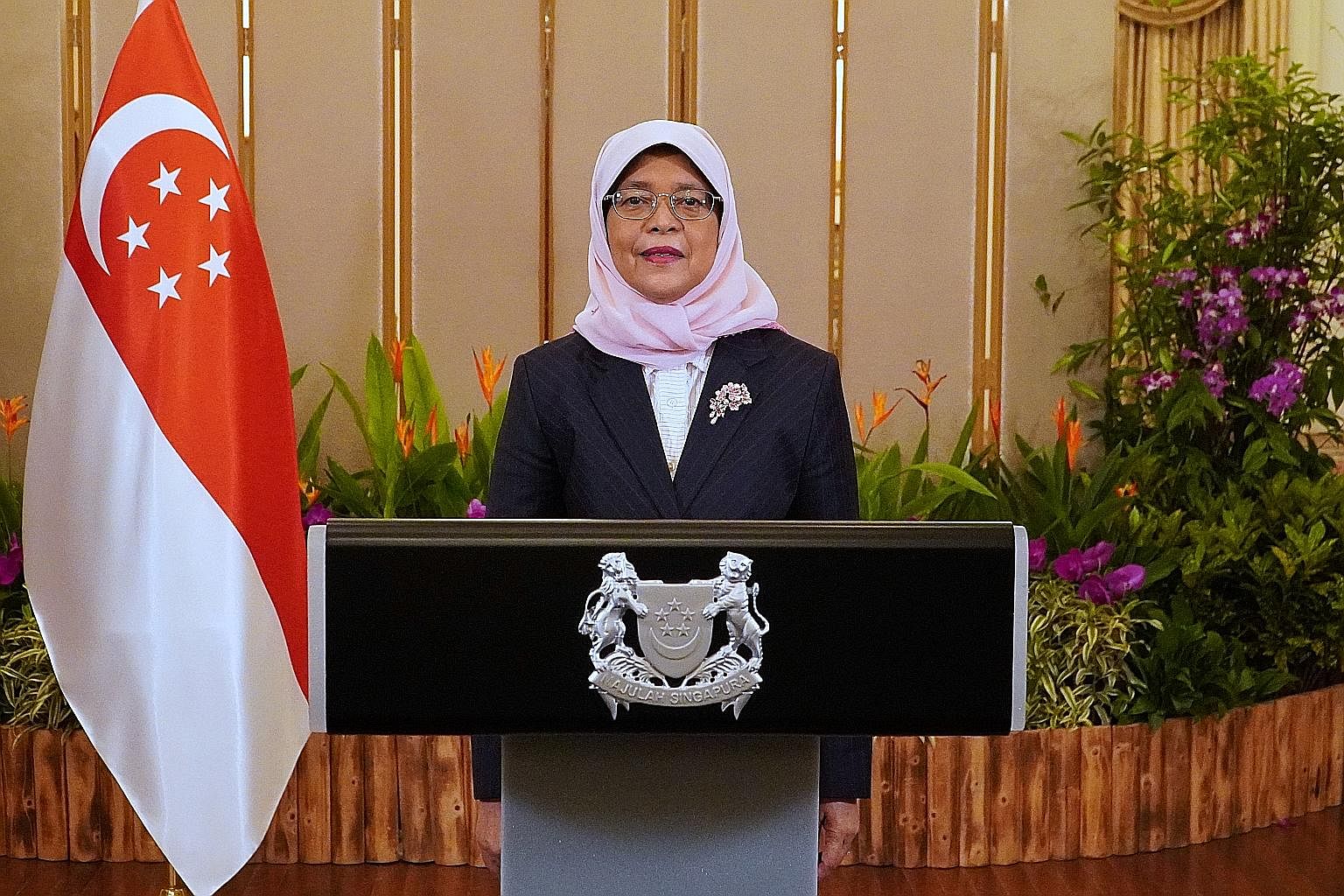Help workers and companies transition to a green economy: President Halimah
Sign up now: Get ST's newsletters delivered to your inbox

The help to transition to a green economy would allow businesses to see sustainability as an area for growth and job creation.
PHOTO: ST FILE
SINGAPORE - Countries are moving to green their economies as they recover from the impact of Covid-19, but workers and firms need to be given help in the transition, said President Halimah Yacob on Tuesday (June 15).
Such support would help businesses see sustainability as an area for growth and job creation, she said during the first day of the virtual United Nations' (UN) Global Compact Leaders Summit.
"Helping companies and workers transition to the green economy will be key to how they, being a major player in the ecosystem, can play a role in the achievement of the 2030 Agenda," she added.
The 2030 Agenda sets out 17 sustainable development goals, including eradicating poverty, achieving gender equality, and taking climate action.
The two-day summit is convened by Global Compact - the UN body that galvanises businesses to be more sustainable - and will be attended by some 25,000 business leaders, members from civil society, and officials from governments and the UN.
The summit aims to galvanise countries to set bold and clear paths for a green recovery from Covid-19 which address climate change, economic disparities and social inequalities.
The need for a just transition - which does not force workers or the vulnerable to bear the brunt of a greener economy - is an issue that has been increasingly discussed on the international stage.
In March this year, countries in the European Union approved a €17.5 billion (S$28.2 billion) Just Transition Fund - a pot of cash to help regions wind down their coal, peat and oil shale sectors and replace them with low-carbon industries and jobs, Reuters reported.
For Singapore, a low-lying city state with limited natural resources, sustainability has always been an integral part of the nation's development journey, Madam Halimah said.
For instance, the country earlier this year launched the Singapore Green Plan 2030 to help "meet our nation's aspirations of achieving net zero emissions", she said.
The plan sets out targets that will help Singapore reduce the size of its carbon footprint, such as those that will encourage greater electric vehicle adoption, and adapt to the impacts of the changing climate. This includes strategies such as protecting its coastlines and increasing local food production.
The plan also highlights new opportunities in the green economy, cutting across all sectors, including infrastructure, clean energy, and research and innovation, Madam Halimah said, adding that Singapore is also helping its workers and businesses in the green transition.
For instance, the Republic is looking to make its industries more energy- and carbon-efficient - including those on Jurong Island, Singapore's petrochemical haven.
Said Madam Halimah: "Our vision is for Jurong Island to be a model for the adoption of new sustainability solutions that improve efficiency and reduce emissions."

President Halimah Yacob, speaking during the first day of the virtual United Nations Global Compact Leaders Summit, said sustainability has always been an integral part of Singapore's development journey.
PHOTO: PRESIDENT'S OFFICE
Singapore is also leveraging its status as a financial hub to support green or sustainable financing, which will enable firms to move towards more sustainable business models, she added.
New sectors in the green economy have also been identified, said Madam Halimah.
"We want to be a leading carbon services hub, and a marketplace for high-quality carbon offsets," she added.
Singapore will also step up its investment into research, innovation and enterprise in the coming years, and support the development and commercialisation of emerging low-carbon technologies such as hydrogen, Madam Halimah said.
Hydrogen is considered cleaner fuel as it does not produce planet-warming carbon dioxide when burned.
Madam Halimah noted that the Covid-19 pandemic has threatened to reverse decades of developmental gains - pushing people, especially women and girls, into extreme poverty.
Some 205 million people are expected to be unemployed in 2022, she added. At the same time, many countries are also grappling with climate change.
"The pandemic offers us a unique opportunity to rethink the future, and forge new pathways towards more inclusive, resilient and sustainable growth," Madam Halimah said.
Governments are making a concerted effort to integrate environmental and social priorities into their economic plans, she noted. "I hope that this will carry on beyond the pandemic."
Singapore, for its part, will continue to fully support the efforts of the UN Global Compact and its local chapters, including the Global Compact Network Singapore, said Madam Halimah.
"Now, more than ever, countries, businesses and people will need to work together to build a better future for everyone," said Madam Halimah. "So let us elevate our ambition and take collective action, as we rededicate our commitment to achieving sustainable development for all."


